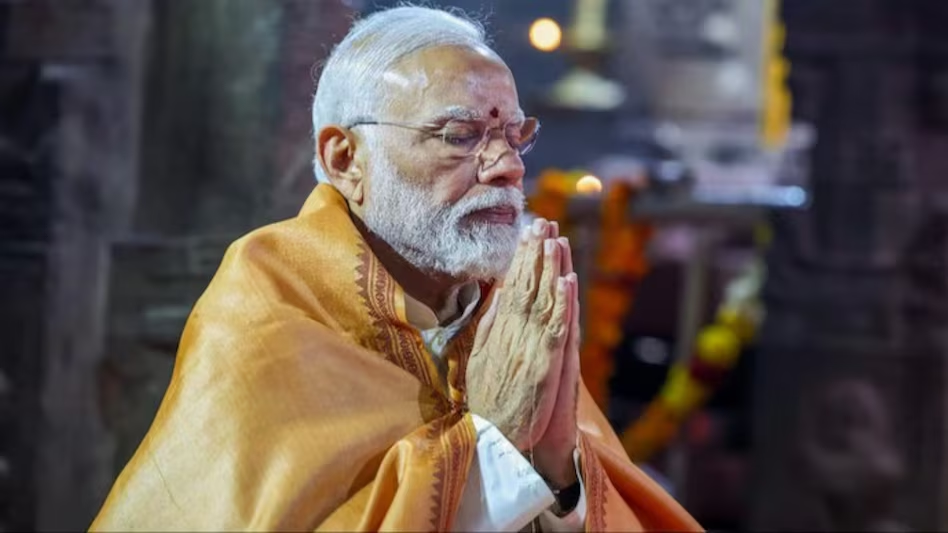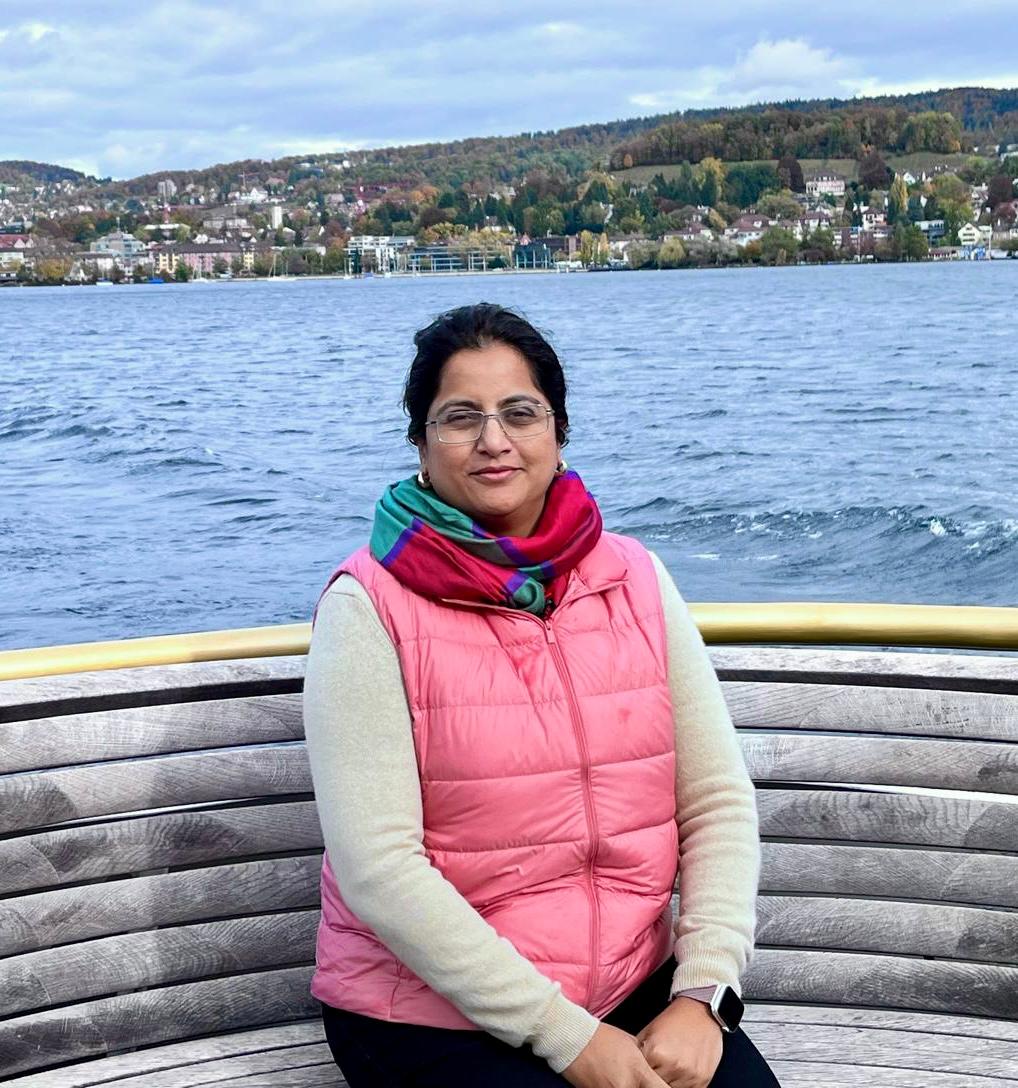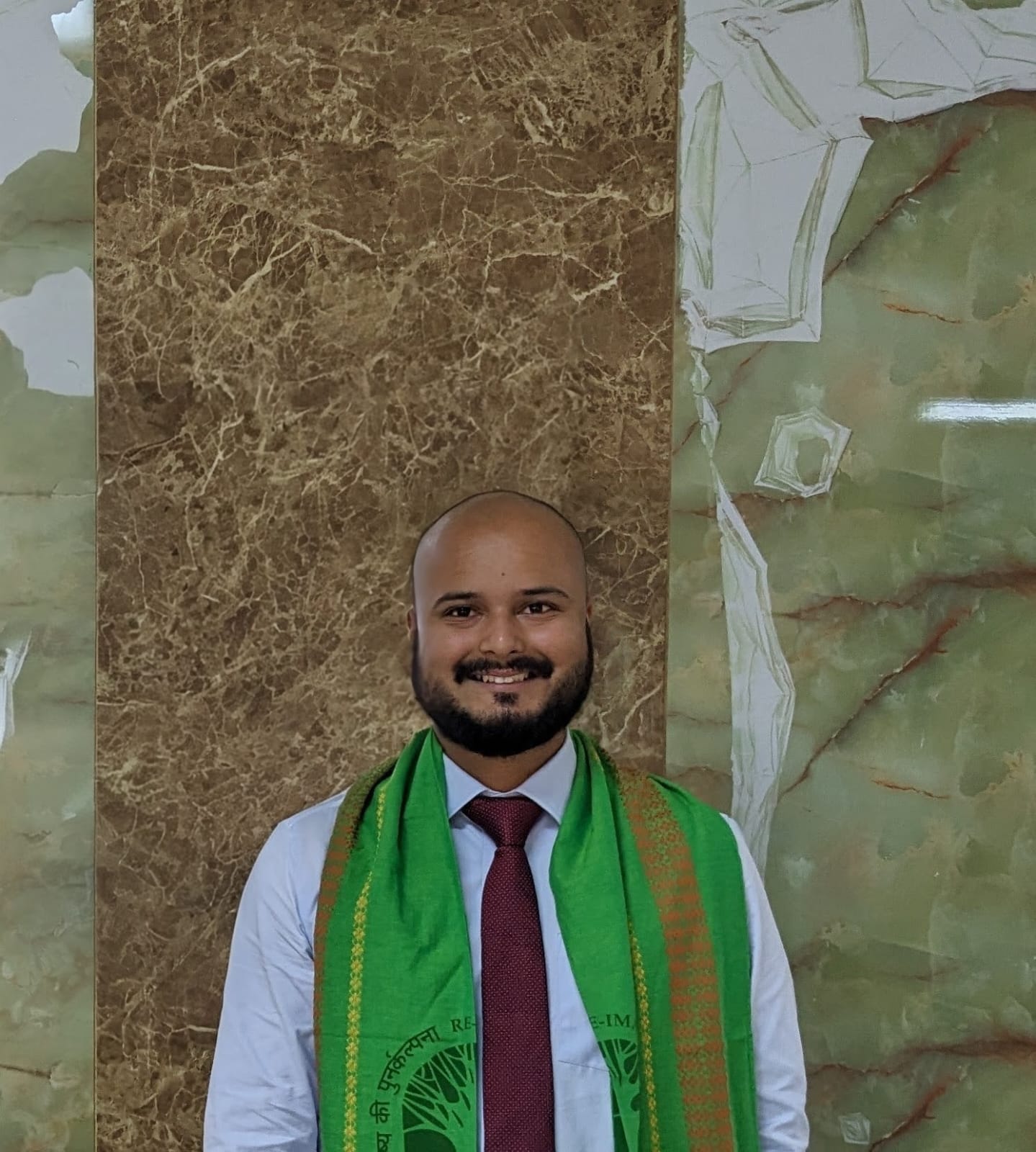India has long been a land where silence is sacred. Here, meditation is not just a practice; it is a way of life, passed down through generations and deeply embedded in the country’s cultural fabric. In recent years, as the world struggles with rising stress and distractions, India has positioned itself as the global center for spiritual rejuvenation. From Prime Minister Narendra Modi’s meditative retreats to the international embrace of yoga and mindfulness, the country spearheads a movement where spirituality is no longer a personal pursuit but a global necessity.
My introduction to meditation came not through books or retreats but within the walls of my home. As a child, I watched my parents sit in stillness every morning, eyes closed, breath steady, utterly unaffected by the chaos of daily life. At the time, I didn’t understand it, but I sensed something profound: their unwavering calm, their quiet presence. It was a lesson I would only truly appreciate much later when life’s uncertainties made me seek that same refuge within myself.
In today’s high-stakes corporate world, where burnout and stress have become the norm, some of the world’s largest companies are turning to meditation. Tech giants like Google and Apple have incorporated mindfulness programs, offering guided meditation sessions inspired by techniques rooted in Indian traditions. Goldman Sachs and Nike have created dedicated meditation spaces, recognizing that clarity and calmness are as crucial in a boardroom as in a monastery. At Salesforce, every floor of their San Francisco headquarters features meditation rooms, a quiet nod to the transformative power of stillness. These initiatives aren’t just about wellness; they’re reshaping workplace culture, proving that the wisdom of Indian meditation isn’t confined to ashrams but is now influencing the heart of global business strategy.
The Power of Stillness in Leadership
It is no coincidence that some of India’s most revered leaders have turned to meditation during pivotal moments. In 2014, after his election victory, Prime Minister Modi retreated to the Kanyakumari Rock Memorial, where Swami Vivekananda had once meditated before his global journey. Five years later, as he prepared for re-election, Modi withdrew to a cave in Kedarnath, seeking solitude in the Himalayas. These were not merely symbolic gestures; they were a testament to the idea that true strength comes from inner stillness.
PM Modi’s retreat to the mountains in the midst of a high-stakes election was a statement. For a leader constantly in motion, the choice to pause, to reflect, was significant. I remember watching those images of him, draped in saffron, sitting cross-legged in absolute silence inside the stone cave of Kedarnath. It reminded me of something my father says, “The strongest decisions are made in silence, not in noise.” That moment of a leader retreating into stillness amidst the clamor of the world was a powerful message.
Current world leaders have increasingly recognized the value of meditation in enhancing personal well-being and leadership effectiveness. For instance, during the 2025 World Economic Forum in Davos, global leaders participated in silent hikes accompanied by Alan Watts’s teachings, reflecting a growing integration of mindfulness practices into high-level discussions.
In Ireland, political figures have openly shared their meditation routines. Sinn Féin leader Mary Lou McDonald revealed, “I took up transcendental meditation a number of years back, and it is such an easy way to totally recharge and to get such perfect rest, even in the middle of very busy days.”
These examples underscore a broader trend among contemporary leaders embracing meditation to foster clarity, resilience, and balanced decision-making in their professional and personal lives.
Following these visits, spiritual tourism in these locations surged, with people worldwide seeking the meditative energy of these sacred spaces.
India’s leadership in spirituality extends beyond its borders. Under Modi’s tenure, platforms like the United Nations and the World Economic Forum have become stages for promoting yoga and meditation as solutions to modern stress. The Ministry of AYUSH has been crucial in taking India’s wellness traditions worldwide, integrating mindfulness into schools, hospitals, and workplaces.
One of the most remarkable successes of India’s spiritual diplomacy is International Yoga Day on June 21, a global movement celebrated in over 190 countries. The sheer scale of this initiative, mass yoga sessions in Times Square, by the Seine in Paris, and even in Antarctica, underscores how meditation and mindfulness has transcended geography and culture.
Yet, beyond the celebration, there lies a deeper shift, one that is happening not just in public spaces but in high-level governance. Meditation is no longer just about personal well-being; it is becoming a tool for leadership. The G20 Summit in 2023, held under India’s presidency, was a prime example. The theme Vasudhaiva Kutumbakam, “The World is One Family,” was not just a diplomatic phrase; it was an ancient Indian philosophy woven into modern decision-making. Conversations on sustainability, economic policy, and peace negotiations took on a new dimension, one that recognized the role of inner clarity in outer progress.
Mahakumbh 2025: A Global Spiritual Gathering
India’s role as a spiritual leader took center stage again at Mahakumbh 2025, traditionally the world’s largest religious gathering. Mahakumbh is recognized as the largest spiritual gathering in the world, occurring every 12 years in India.
Mahakumbh, this year, has transcended its traditional role as a Hindu pilgrimage, evolving into a global spiritual summit that draws seekers, thought leaders, and wellness advocates from around the world. This year’s gathering has seen an unprecedented international engagement, with renowned meditation teachers, neuroscientists, and global wellness leaders convening to explore the intersection of ancient wisdom and modern mindfulness.
One of the standout events has been the Global Consciousness Summit, where experts discussed the impact of meditation on mental health, leadership, and global peace initiatives. Among the keynote speakers was Dr. Richard Davidson, a leading neuroscientist from the University of Wisconsin, who highlighted new research on how meditative practices influence brain function and emotional resilience. Sharon Salzberg, a pioneer in bringing Buddhist meditation to the West, led discussions on how India’s ancient traditions continue to shape global mindfulness movements.
The international footprint of Mahakumbh 2025 was further evident in the participation of wellness advocates like Deepak Chopra, who emphasized the scientific validation of meditation’s benefits, and Eckhart Tolle, who spoke about India’s spiritual heritage as the foundation for global consciousness. Delegations from Japan, the U.S., and Europe organized meditation workshops, reinforcing the festival’s status as a global confluence of spiritual and scientific dialogue.
A striking example of Mahakumbh’s expanded influence came when Christian Villarreal, Bolivia’s Head of Mission in India, attending the event, remarked, “The Minister of External Affairs has the capacity to invite us once a year to the main celebrations of India. I had the privilege to be invited to Diwali 1.5 years ago, but nothing compares to this occasion. Not even my sons will be able to visit such an event, which happens once in 144 years.” He then added, “This is not just an Indian festival; this is a global movement towards inner peace. If world leaders approached decision-making with the stillness found here, governance would look very different.” The message is clear: meditation is no longer just an individual practice; it is a shared human necessity, bridging cultures, traditions, and nations.
As meditation becomes a global phenomenon, efforts are also underway to preserve India’s sacred spaces as UNESCO Heritage Sites. Destinations like Bodh Gaya, Rishikesh, and Varanasi are not just historical landmarks; they are living, breathing centers of wisdom. India is actively working to ensure these sites remain untouched by excessive commercialization, preserving them for future generations of seekers. Rishikesh, Dharamsala, and Kerala: India’s Meditation Capitals
Recognizing the rising demand for spiritual tourism, the Indian government is actively promoting places like Rishikesh, Dharamsala, and Kerala as international wellness hubs. Rishikesh, known as the “Yoga Capital of the World,” has become a magnet for those seeking authentic meditation training. Dharamsala, home to the Dalai Lama, has evolved into a Buddhist retreat, offering immersive mindfulness experiences. Kerala, where Ayurveda and meditation merge, provides a holistic escape from modern stress.
A close friend of mine, a high-powered executive, was once skeptical about meditation. “I don’t have time to sit and breathe,” he would say. But after a sudden burnout, he took an impulsive trip to Rishikesh. A month later, when he returned, he wasn’t just refreshed; he was different. He told me, “I still have the same pressures, but I don’t feel consumed by them anymore.” That is the power it brings. It doesn’t erase life’s struggles but changes the way we carry them.
As the world becomes more chaotic, meditation is no longer just a wellness trend; it is a survival tool. Anxiety, burnout, and digital exhaustion have become everyday struggles, and people are seeking something deeper than temporary relief. India, with its centuries-old wisdom, is showing the way.
For me, meditation has been a quiet revolution. It has helped me navigate loss, uncertainty, and the ever-changing demands of life. As India shares this wisdom with the world, it is not just promoting wellness; it is offering a way to return home to ourselves.
Sri Sri Ravishankar once said, “Nothing in the world can bother you as much as your own mind, I tell you, in fact, others seem to be bothering you, but it isn’t others; it is your own mind.” This, I believe, is the heart of India’s message to the world.
Because in the end, the answers we seek, whether in the peaks of the Himalayas or the silence of our breath, have always been within us. We just need to pause long enough to listen.
The views and opinions expressed here belong solely to the author and do not reflect the views of BlueKraft Digital Foundation.







